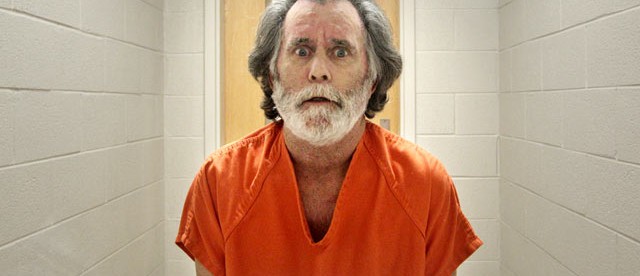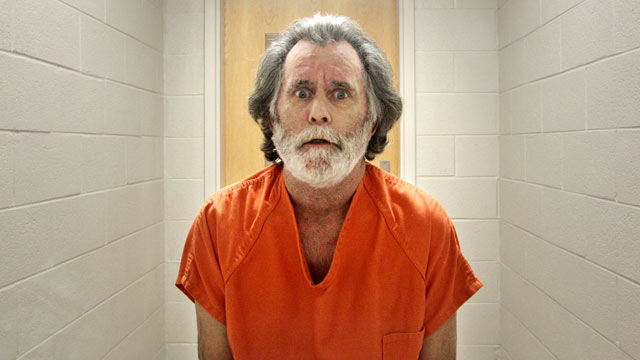The $1 Health Care Plan


It was June 23, 2011. A 59-year-old man named Richard James Verone, pictured above in his jailhouse orange jumpsuit, was being held in North Carolina, unable to pay the $2,000 bond. He was awaiting his day in court — June 28th — for a crime he committed about two weeks earlier. It was a smooth, calculated crime. On the morning of June 9th, Verone showered, ironed his shirt, and hopped into a cab to go to a nearby bank. He handed the teller a note with a simple demand: take some money out of the drawer and hand it over.
Police arrived shortly thereafter to find Verone sitting there, waiting for whatever was coming to him. And Verone didn’t put up a fight. in fact, he was quick to admit that he was trying to rob the bank. He knew that he was likely facing time in prison.
The good news for him: he wasn’t facing all that much time behind bars.
No, wait — that’s actually the bad news.
Three years prior to the crime, Richard James Verone was a delivery man for a local Coca-Cola bottler, a job he had held for 17 years. But when he lost his job in or around 2008, he entered a weak job market which didn’t provide many opportunities for a 50-something man with his resume. To make matters worse, over his three years of on-again, off-again employment, Verone’s health began to suffer. By the time the spring of 2011 rolled around, his back was constantly in pain, as was his left foot. And even more troubling, there was something growing on his chest.
But going to a doctor didn’t appear to be an option — for reasons unclear, Verone didn’t qualify for any state-funded health care options. And then he realized that there was one class of people for whom the state regularly picked up the doctors’ bills, regardless of all other factors: prison inmates. Verone could become one of them, too; all he needed to do was commit a crime. If he were incarcerated, Verone could get surgery for his back and foot, and whatever care his undiagnosed chest issue called for, too.
So on June 9th, 2011, he walked into the bank and handed the teller his demand note: “This is a bank robbery. Please only give me one dollar.” And then he took a seat, waiting until the police responded to the inevitable 9-1-1 call. They did, and he was arrested. Verone was one step closer to his goal.
The problem? He didn’t demand enough cash. “Because he only demanded $1, he was charged with larceny from a person,” the Gaston Gazette reported: it’s “still a felony” but “doesn’t carry as much jail time as bank robbery.” Verone was looking at maybe nine months behind bars, which at best may have been enough to get that chest thing diagnosed, but wouldn’t keep him in state custody for long enough to get the rest of his treatment.
Verone, realizing his error, told the media that if he didn’t get the full three years he was after — just long enough until he qualified for Social Security — he’d try again. That is, he’d commit another crime. As of this writing — there aren’t a lot of follow-up articles on Verone’s case — the state appeared to call his bluff, and it was a bluff indeed: Verone doesn’t appear in the state’s inmate database.
Bonus Fact: The winner of the January 19, 1993 episode of Jeopardy was an Air Force lieutenant colonel named Darryl Scott. Going into Final Jeopardy, Scott led the previous day’s winner, a therapist from California named Nancy Melucci, by a score of $8,201 to $8,200. To be on the safe side, it made sense for Scott to bid $8,200 on Final Jeopardy — a wrong answer and he could still win, if Melucci wagered it all and was wrong and if the third player did the same. And that’s exactly what happened. Scott won, $1 to $0 to $0, becoming the first Jeopardy champ (so far) to win with only a buck. (In case you are wondering, while Scott’s bet was optimal, his opponents’ bets probably weren’t.)
From the Archives: Judging Jeopardy: What happens behind the scenes when Alex asks the judges for help?
Take the Quiz: Each one of these cities/towns is home to either a prison or a college. Which one is it?
Related: “Ken Jennings’s Trivia Almanac: 8,888 Questions in 365 Days” by the Jeopardy! champ. A good book if you want to try to tie Darryl Scott’s record.
